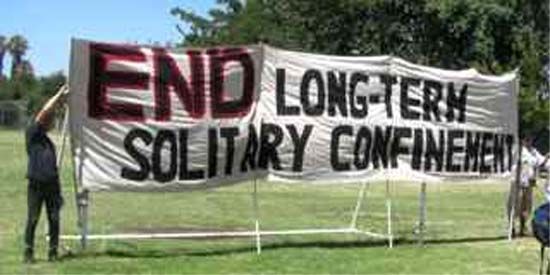This is not going to be a long commentary.
Someone recently sent me a link to a news item, from Ohio.
Ohio Prisons Shut Off Electricity In Exchange For Payments
This was during a time period when I was sweating and uncomfortable in an extended heat wave in my part of the Northeast, and since I don’t have air-conditioning I was jumping into the shower several times a day to cool off.
If you are locked up, and they shut off air, cooling systems, during a heat wave-how many folks on the outside give a damn?
In the Ohio case the ACLU immediately responded. Just as other civil liberties groups and grassroots groups of activists and family members of those who are locked up as well as international organizations like amnesty international have raised an outcry. But for the most part, the story was simply a blip in local news.
At the same time a prisoner hunger strike continues in California, a state with a very large population of inmates (over 200,000).
You can read the hunger striker’s list of demands here.
Many online comments to stories about the strike are essentially “let them die..it will save our tax dollars.”
Over the July 4th weekend I attended a small reunion of members of the Black Panther Party and the Young Lords Party, where we got a chance to as a group, speak to one of our comrades who is locked away – over the phone. We each took a turn to speak, and give him strength. He in turn assured us he is staying strong, but I left there with a lump in my throat, and thinking about trying to raise this issue, yet again, online.
We are aware that we have quite a few brothers and sisters who are serving over 800 years of prison time – much of it as a result of COINtelpro. We have a small “alumni” association, doing the best we can.
We have a brother who is very ill in Angola Prison in LA. Herman Wallace. Amnesty international has taken up his case, for compassionate release.
Herman Wallace and fellow prisoner Albert Woodfox were placed in isolation in 1972. Since then they have been confined to 6.5 X 9 ft cells for 23 hours a day and allowed out only to exercise alone in a small outdoor cage, to shower, or to walk along the cell unit corridor. Both men were convicted of the murder of a prison guard yet no physical evidence links them to the crime; potentially exculpatory DNA evidence has been lost, and the testimony of the main eyewitness has been discredited. These serious legal concerns compound the injustice of decades of cruel confinement.
Now 71 year old Herman Wallace is terminally ill with liver cancer. Call on Louisiana Governor Bobby Jindal to end the 41 year nightmare and release Herman so that his family can care for him during his last months.
Click here to sign their petition.
The Angola 3 have a series on Daily Kos, and at other places around the web, but haven’t raised a significant level of outrage or interest from a broad swath of those who include themselves in political boxes that are liberal or left.
I am feeling pretty frustrated. Given the level of vituperativeness exhibited towards Trayvon Martin (not just on right-wing sites), tarred with a “thug” label (read: black criminal) and “blame for his own murder” rhetoric, which essentially tells people it was okay for him to be shot and killed, I have little hope that the voices of the left will make much of an effort to make incarceration, and those human beings locked away, many in solitary for more than 40 years a priority.
This brief comment is a question to readers.
Do you think that we will ever be able to make the criminal injustice system, as it applies to incarcerees who are not high-profiled, or white, a priority?
Have the prison porn, anti-crime, law and order mantras made it impossible for us to garner support from those who embrace a leftist, liberal, progressive, radical perspective around other issues?
I know that many people have a list of what they feel are their top priorities for change. Climate change, the environment, Wall Street, racism, voting rights, gun control, the war on women, the war on drugs (mostly about pot) LBGT rights….rarely do I see folks put the incarceration nation at the top of their lists.
Yes, I know that there are groups devoted to ending solitary, ending the death penalty, ending torture, defending high profile cases, getting those wrongly convicted released…but I’m not sure that there will ever be a time in the foreseeable future that there is a massive outcry about the status quo – simply because too many people agree that inmates deserve to be where they are, and ignore their treatment once locked away from view.
There was only one reader comment attached to a news update on the Ohio situation.
To me it represented the way too many people think, no matter their party affiliation.
What I’d like to know is why should people support feeding and taking care of persons who deliberately go and do things and get thrown in jail ? They need to stop being crooks drug dealers and all the other things that get them thrown in there
I’d like to ask what you think some practical solutions are, short term and long term for moving this issue up on folks list of priorities?
Or is it futile…and will the few of us who’ve been doing this work for decades continue to be a tiny minority?
Cross-posted from Black Kos)


28 comments